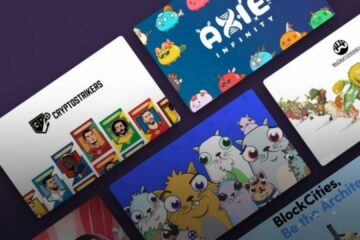The music industry NFTs has been in a state of flux for years now with the advent of different digital media formats. With newer, more advanced technologies such as blockchain making their way into our lives, it’s time to think about what the future may hold for this ever-changing industry. This article will explore some possible ways that blockchain technology could shape the future of the music industry.
Blockchain is an emerging technology that allows any two people or entities to securely and anonymously transfer data over the internet without having to go through a centralized server. The primary advantages are security and speed; no third party can interfere with your transaction because it’s not stored in one location like traditional methods (i.e., banking). Blockchain also eliminates middlemen which in turn reduces the cost of doing business and makes transactions cheaper and faster.
As blockchain technology is in its infancy, we’re seeing a whole ecosystem of possibilities developing around it. One such possibility could be that blockchain will allow for the exchange of virtual goods (e.g., NFTs) without having to go through a centralized server. This would mean that instead of buying music from a centralized platform, you could buy it directly from the artist. Like any virtual good , blockchain-based digital downloads are better shared, traded, and even resold. It’s also possible to transfer these goods between different users without having to go through an intermediary.
NFTs could shape the future of the music industry
NFTs, Non-Fungible Tokens, are a form of cryptocurrency that exists on the Ethereum blockchain. NFTs allow for digital collectibles to be created and traded. One such example of this is CryptoKitties – they’re virtual animals that can be bred with other CryptoKitties to create new, unique offspring.
Some believe that NFTs may be the future of the music industry because it could provide a way for musicians to release their creations while retaining ownership of their work. Allowing artists to take ownership of their work while still having the potential to make money from it is not only good for them but for other creators in both the music and games industries.
Proving ownership
NFTs could provide a way for artists to prove they are the owner of their music, something that will be important in the future with licensing agreements becoming more complex. They will also be able to share it on platforms such as Apple Music or Spotify without having to worry about losing control over it since they own the rights to it.
Disintermediation
One of the biggest problems for artists right now is that they have very little control over getting their music out to the public. This is because platforms like Spotify or Apple Music take a large cut of an artist’s royalties when it comes streaming. Also, in order to make it on these platforms, artists may need to sign over some of their rights. With NFTs, the artist can retain ownership of their music and make it available through any platform they like such as Bandcamp or DTube. Artists will be able to release their own songs with little cost and without needing to go through a third party.
NFTs and the music industry: The future of the industry?
While NFTs are not yet widely used in the music industry, there are some musicians who have started using them. For example, Imogen Heap has taken to using Mycelia to distribute her song Tiny Human by uploading it onto Ethereum’s blockchain where anyone can download it for free but pay or request a fee if they want to remix it.
NFTs may provide an alternative revenue model for musicians because rather than having artists rely on album sales, streaming could become their main source of income. This means that the success of their music will depend more on how popular it is rather than its sales which is what artists should be focused on.
How else NFTs will shape the future of the industry
NFTs might also be used for supply chain management within the music industry. For example, it could be used to track which artist worked on a specific piece of work – this is important in situations where artists are not credited for their contributions. It could also be used to ensure that royalties are distributed properly since they would have coded information about who created what part of the song.
However, there are some concerns with NFTs when it comes to music licensing agreements. One such concern is whether or not payment transfer in cryptocurrencies can violate laws against money laundering or being an unlicensed money transmitter. There may need to be legal changes made in order for them to become widely accepted by different platforms and services within the music industry.
In conclusion
NFTs may not be fully adopted into the music industry just yet but it is a possibility for the future. The main concern with them so far is how they will be regulated and whether or not they will be able to integrate easily within existing laws and licensing agreements. However, these concerns shouldn’t stop other people from exploring their use in the music industry especially since there are already some musicians who have started using NFTs including Imogen Heap’s Tiny Human being placed on Ethereum’s blockchain. What do you think about NFTs? Let us know in the comments below!



0 Comments